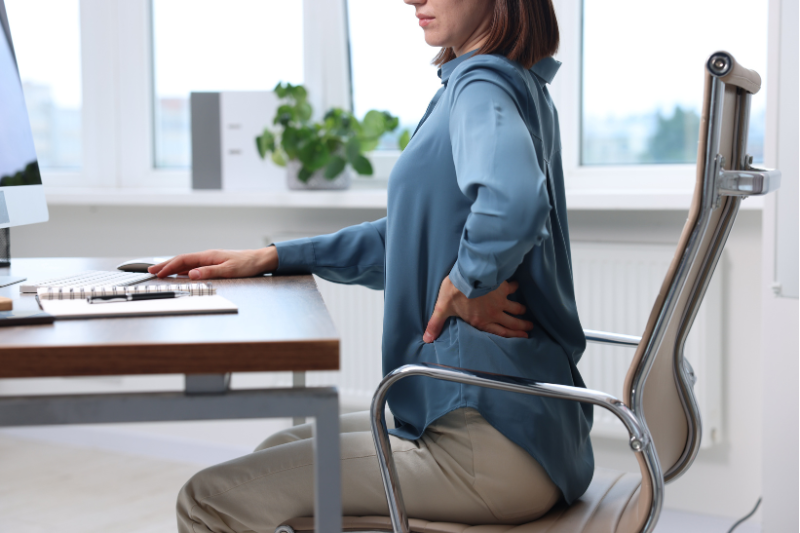If you struggle with GERD (Gastroesophageal Reflux Disease), you already know the classic triggers—spicy food, late-night meals, caffeine, or alcohol. But did you know that stress and posture also play a huge role in worsening GERD symptoms?
From heartburn and regurgitation to chest discomfort, GERD is often aggravated not just by what you eat, but by how you live. Let’s explore the surprising connection between stress, poor posture, and acid reflux—and how to fix it naturally.
Stress and GERD: The Gut-Brain Connection
Your digestive system is closely linked to your nervous system through the gut-brain axis. When you’re stressed, your body produces more cortisol and adrenaline, which affect digestion in several ways:
- Increased acid production → More stomach acid means higher chances of reflux.
- Weakened esophageal sphincter (LES) → Stress can impair the muscle that normally keeps acid in the stomach.
- Heightened sensitivity → Stress makes you more sensitive to pain, so heartburn feels worse.
- Unhealthy coping habits → Stress often leads to smoking, caffeine, alcohol, or late-night snacking—major GERD triggers.
👉 This is why many people report heartburn during work deadlines, exams, or emotional stress.
Poor Posture and GERD: Why Sitting Matters
How you sit and stand directly affects your digestive system. Slouching, hunching over a laptop, or lying flat after meals can worsen reflux by:
- Increasing stomach pressure → A hunched posture compresses the stomach, pushing acid upward.
- Weakening the LES → Long hours of poor posture reduce the effectiveness of the valve that prevents reflux.
- Delaying digestion → Slouching slows gastric emptying, keeping food (and acid) in the stomach longer.
👉 This explains why office workers and people with sedentary lifestyles often experience acid reflux flare-ups
How to Reduce GERD Symptoms Naturally
The good news: simple lifestyle changes can help manage GERD alongside diet.
Stress-Relief Practices
- Practice deep breathing or meditation to calm the nervous system.
- Try yoga for digestion (gentle twists, cat-cow, child’s pose).
- Maintain a consistent sleep routine to reduce stress hormones.
Posture Fixes
- Sit upright with your back supported, especially after meals.
- Avoid lying down for at least 2–3 hours after eating.
- Use a wedge pillow or elevate your head while sleeping.
- Take short standing or walking breaks every hour if you sit at a desk.
Other Helpful Tips
- Eat smaller, balanced meals instead of heavy portions.
- Limit caffeine, alcohol, fried, and spicy foods.
- Wear loose clothing to reduce stomach pressure
Final Thoughts
GERD isn’t only about food—it’s also about how your body responds to stress and posture. High stress levels can boost acid production, while slouching or lying flat makes it easier for acid to escape into the esophagus.
By combining stress management with better posture habits, you can significantly reduce GERD symptoms and improve digestion naturally.
Small daily changes—like mindful breathing, sitting tall, and avoiding late-night meals—can go a long way in restoring gut comfort and giving you relief.


